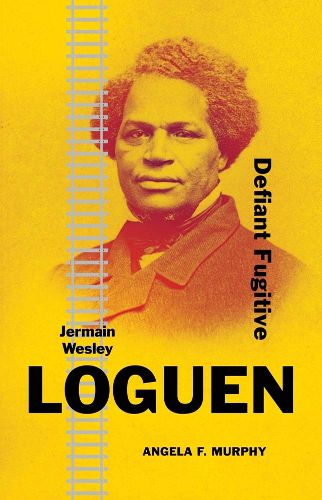Readings Newsletter
Become a Readings Member to make your shopping experience even easier.
Sign in or sign up for free!
You’re not far away from qualifying for FREE standard shipping within Australia
You’ve qualified for FREE standard shipping within Australia
The cart is loading…






A gripping biography of a man who escaped slavery to become an influential abolitionist, famously known as the "King of the Underground Railroad"
Jermain Wesley Loguen (1813-1872) was a fugitive from slavery, an abolitionist, and a minister, teacher, and political activist. He worked alongside Harriet Tubman and Frederick Douglass, and his home in Syracuse, New York, was among the most publicized Underground Railroad stations in the northern states. Loguen's political commitments in the years before the Civil War were carried out at great personal risk, for he had liberated himself from slavery in Tennessee and was in constant danger of being captured and reenslaved under the Fugitive Slave Law. Defiantly, however, he refused to purchase his own freedom, an act that he believed would have legitimized the rights of slaveholders. In addition to aiding fellow fugitives from slavery, Loguen worked tirelessly to promote Black equality and uplift throughout upstate New York and Canada. After Emancipation, he extended his work to aid freedpeople in the South and to advocate for Black equality on a national scale.
In this engaging study, Angela F. Murphy follows Loguen from his early years through his transformation into one of the brightest stars in the constellation of abolitionists and reformers in New York.
$9.00 standard shipping within Australia
FREE standard shipping within Australia for orders over $100.00
Express & International shipping calculated at checkout
Stock availability can be subject to change without notice. We recommend calling the shop or contacting our online team to check availability of low stock items. Please see our Shopping Online page for more details.
A gripping biography of a man who escaped slavery to become an influential abolitionist, famously known as the "King of the Underground Railroad"
Jermain Wesley Loguen (1813-1872) was a fugitive from slavery, an abolitionist, and a minister, teacher, and political activist. He worked alongside Harriet Tubman and Frederick Douglass, and his home in Syracuse, New York, was among the most publicized Underground Railroad stations in the northern states. Loguen's political commitments in the years before the Civil War were carried out at great personal risk, for he had liberated himself from slavery in Tennessee and was in constant danger of being captured and reenslaved under the Fugitive Slave Law. Defiantly, however, he refused to purchase his own freedom, an act that he believed would have legitimized the rights of slaveholders. In addition to aiding fellow fugitives from slavery, Loguen worked tirelessly to promote Black equality and uplift throughout upstate New York and Canada. After Emancipation, he extended his work to aid freedpeople in the South and to advocate for Black equality on a national scale.
In this engaging study, Angela F. Murphy follows Loguen from his early years through his transformation into one of the brightest stars in the constellation of abolitionists and reformers in New York.